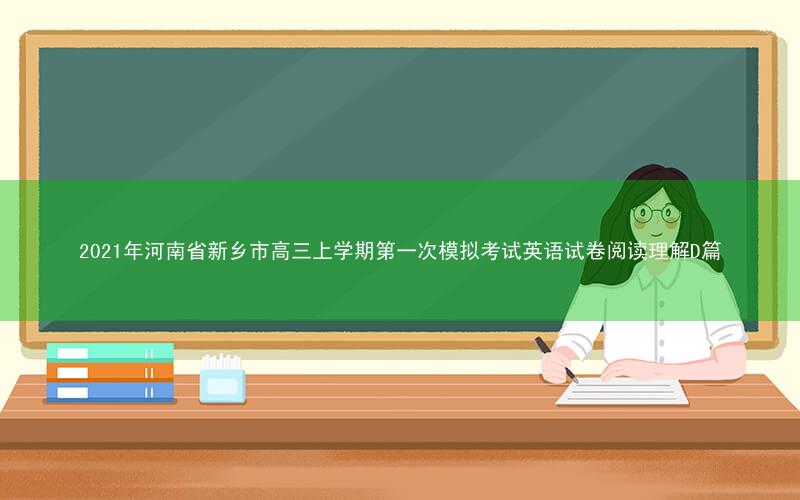秒词邦
分题型分考点背单词 文
文 文
文

Tests, after-school activities and problems at home can increase stress for students. But research now suggests that the main reason for the students’ rising anxiety levels is something else.
A psychology professor Jean Twenge said “What a lot of teens told me is that using social media and their phones seems forced. This use of phones has led to a loss of sleep and face-to- face interactions.” Last year, in the journal Pediatrics three researchers wrote that too much social media use might contribute to the development of mental health problems in teenagers, such as loneliness, depressive symptoms and anxiety.
Researchers are still not sure whether phones cause student depression or depression causes phone use. Yet 70 percent of teens see anxiety and depression as major problems among their peers, according to a February Pew Research Center report.
Schools are starting to take steps to deal with the problem. Many public schools pay outside companies to watch students’ social media activity for signs of pain. Some schools have organized some events in which people do not use their electronic devices. Belfast Area High School in Maine had one such event in April. About 20 percent of students and school employees took part, demonstrating the influence that the technology has on their daily life.
Emily Mogavero, a 17-year-old student in New York, said “I definitely feel stressed to keep up my information and stuff. It kind of worries me that I’m on my smart phone so long.” Mogavero said she sometimes puts her phone out of reach or powers it down so she doesn’t hear anything.
Some parents are not letting their children get smart phones until they grow up. A teacher, Erin Schifferli, says her 12-year-old daughter, Aeva, won’t get a phone until she is 16 years old. Deirdre Birmingham of Montclair signed on a campaign called “Wait Until Eighteen” because she didn’t think her video game-loving 10-year-old son was ready for a smart phone.
考试、课后活动和家庭问题都会增加学生的压力。但现在的研究表明,学生焦虑水平上升的主要原因是其他原因。
心理学教授Jean Twenge说:“很多青少年告诉我,使用社交媒体和手机似乎是被迫的。这种手机的使用导致了睡眠不足和面对面的互动。”去年,三名研究人员在《儿科学》杂志上写道,过多地使用社交媒体可能会导致青少年心理健康问题的发展,抑郁症状和焦虑。
研究人员仍然不确定是手机导致学生抑郁还是抑郁导致手机使用。然而,皮尤研究中心2月份的一份报告显示,70%的青少年认为焦虑和抑郁是同龄人的主要问题。
学校开始采取措施来解决这个问题。许多公立学校花钱请外部公司观看学生的社交媒体活动,寻找疼痛迹象。一些学校组织了一些人们不使用电子设备的活动。缅因州贝尔法斯特地区高中在4月份举办了一次这样的活动。大约20%的学生和学校员工参加了活动,展示了这项技术对他们日常生活的影响。
纽约17岁的学生艾米丽·莫加韦罗(Emily Mogavero)说:“我确实感到有压力,要保持我的信息和东西。我在智能手机上呆了这么久,这让我有点担心。”莫加韦罗说,她有时会把手机放在够不着的地方,或者把电源关掉,这样她就什么也听不见了。
有些父母在孩子长大之前不让他们使用智能手机。老师Erin Schifferli说,她12岁的女儿Aeva要到16岁才能拿到电话。蒙特克莱尔的迪尔德丽·伯明翰(Deirdre Birmingham)签署了一项名为“等到18岁”的活动,因为她认为她10岁的儿子还没有准备好用智能手机。
句子成分分析:
But research now suggests | that the main reason (for the students' rising anxiety levels) is something (else).
句子语法结构详解:
* suggests 为谓语,采用一般现在时。动词采用第三人称单数形式。
* that 为连词,引导宾语从句。
* is 为系动词作谓语,采用一般现在时。
* else 为副词作后置定语
* something 为不定代词。students' 为名词所有格。the 为定冠词。
句子相关词汇解释:
Vocabulary:
but [bʌt] | conj. | 1) 但是 2) 而, 却 |
research [ri'sә:tʃ] | n. | 研究,调查,探索 |
now [nau] | ad. | 现在, 目前 |
suggest [sәg'dʒest] | vt. | 1) 建议,提议 2) 推荐,举荐 |
main [mein] | a. | 主要的,最重要的 |
reason ['ri:zn] | n. | 1) 原因,理由,解释 2) 正当理由,道理,情理 |
student ['stju:dnt] | n. | 1) 学生,(尤指)中学生 2) 大学生,研究生,博士生 |
rising ['raiziŋ] | a. | 上升的, 高涨的, 新兴的 |
anxiety [æŋ'zaiәti] | n. | 1) 焦虑,忧虑 2) 担心,忧虑,害怕 |
level ['levl] | n. | 1) 水平,级别,层次 2) 水平高度 |
something ['sʌmθiŋ] | pron | 1) 某事, 某物 2) 被视为重要或有意义的事物 |
else [els] | ad. | 另外, 其他 |
句子成分分析:
Yet 70 percent (of teens) see anxiety and depression [as major problems] [among their peers], [according to a February
Pew Research Center report].
句子语法结构详解:
* see 为谓语,采用一般现在时。
* their 为形容词型物主代词。a 为不定冠词。
句子相关词汇解释:
Phrase:
according to | 根据,据(某人)所述 |
Vocabulary:
yet [jet] | conj. | 然而; 但是 |
70 percent | 70% | |
teen [ti:n] | n. | 1) (teens) 十几岁 2) (口语)青少年 |
see [si:] | vt. | 1) 看见,见到,看出 2) 观看(比赛、电视节目、演出等) |
anxiety [æŋ'zaiәti] | n. | 1) 焦虑,忧虑 2) 担心,忧虑,害怕 |
and [ænd] | conj. | 1) 和, 与, 同, 并 2) 然后,接着 |
depression [di'preʃәn] | n. | 1) 经济萧条期 2) 忧郁,抑郁,消沉 |
as [æz] | prep. | 1) 作为, 当作 2) 像,如同 |
major ['meidʒә] | a. | 1) 主要的,重要的,大的 2) 严重 |
problem ['prɔblәm] | n. | 1) 棘手的问题,难题,困难 2) 逻辑题,数学题 |
among [ә'mʌŋ] | prep. | 1) 在(其)中,...之一 2) 在...之中,周围是... |
peer [piә] | n. | 1) 身份(或地位)相同的人,同龄人,同辈 2) (英国)贵族成员 |
February ['februәri] | n. | 二月 |
pew [pju:] | n. | 教堂长椅 |
research [ri'sә:tʃ] | n. | 研究,调查,探索 |
center ['sentә] | n. | 1) 中央,中心 2) 中心区 |
report [ri'pɔ:t] | n. | 1) 报告,汇报,记述 2) 报道 |
句子成分分析:
DeirdreBirmingham (of Montclair) signed [on a campaign called "Wait [Until Eighteen]"] || because she didn't think |
her video gameloving 10yearold son was ready for a smart phone.
句子语法结构详解:
(didn't = did not)
* signed 为谓语,采用一般过去时。
* called 为过去分词,作后置定语。
* wait 开头为祈使句。
* wait 为谓语。
* because 为连词,引导原因状语从句。
* think 为谓语,采用一般过去时。
* her 开头为宾语从句,引导词 that 被省略。
* was 为系动词作谓语,采用一般过去时。
* ready 为形容词作表语。
* she 为人称代词主格。her 为形容词型物主代词。did 为助动词。a 为不定冠词。
句子相关词汇解释:
Phrase:
be ready for... | 准备好... |
smart phone | 智能手机,智能电话 |
Vocabulary:
sign [sain] | vi. | 1) 签字,签约 2) 示意, 做手势 |
campaign [kæm'pein] | n. | 1) 运动 2) 战役 |
call [kɔ:l] | vt. | 1) 大声叫,大声说 2) 把……叫做,称呼 |
wait [weit] | vi. | 1) 等,等待,等候 2) (尤指长期地)希望,盼望,期待 |
until [әn'til] | prep. | 1) 直到(某时) 2) not...until 直到(某时)...才 |
eighteen ['ei'ti:n] | num | 十八 |
because [bi'kɔ:z] | conj. | 因为 |
think [θiŋk] | vt. | 1) 想,思考,思索,思想 2) 想,琢磨 |
video ['vidiәu] | n. | 1) 录像 2) 录像带 |

以上是秒词邦为您整理编写的文章《2021年河南省新乡市高三上学期第一次模拟考试英语试卷阅读理解D篇——秒词邦背单词app》的全部内容。秒词邦是国内权威分题型分考点背诵中高考/四六级考研/专升本/出国单词的专业单词软件。扫描如下小程序码,进入秒词邦官方小程序获取更多英语相关资料! 【关键词:高考单词;高考英语;高中单词;高中英语;单词app;单词软件;记单词app;记单词软件;背单词软件;背单词app;英语单词;四六级单词;四六级英语;四六级单词app;四六级单词软件;考研单词app;考研单词软件;核心单词;高考冲刺复习;高考英语教材;高考英语真题;四六级真题;四六级试题;考研真题;考研英语单词;考研英语真题】





